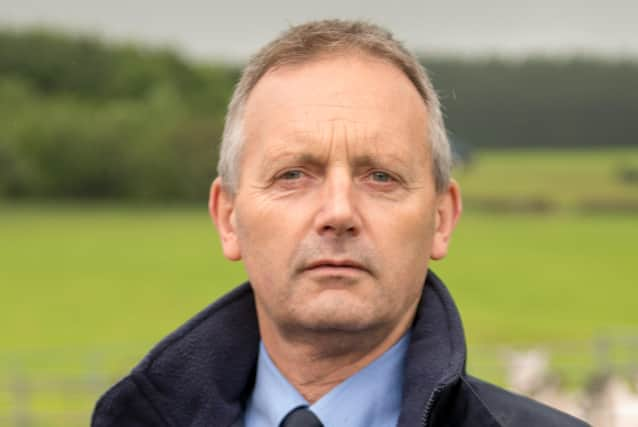Bleak picture of a pastoral idyll under threat


Stating that the loss of Britain’s pastoral heritage would be the stark consequence of an inadequate analysis, the National Sheep Association (NSA) also highlighted the spectre of supermarket shelves being stocked with imported meat produced to standards neither permitted nor desired in the UK, along with an associated erosion of rural communities.
Stating that such outcomes would not be welcomed by anyone, the association yesterday moved to highlight the fact that without a more complete analysis of UK sheep farming and the positive role it plays in the fight against climate change, the threat of negative results through alternative land use strategies could become a reality.
Advertisement
Hide AdAdvertisement
Hide Ad“While COP26 will understandably primarily focus on carbon emissions and climate change, NSA is stressing how a more holistic approach to sustainability is required if we are to meet environmental, economic and social goals,” said NSA chief executive, Phil Stocker.
He said the NSA was encouraging policy makers not to think of climate change, or nature recovery in isolation, but to consider in tandem the protection of natural resources, heritage, rural economies, the health and wellbeing of people, and sustainable and local food production and consumption.
“There is a reason why Britain has a reputation for being a green and pastoral nation. Our climate and weather conditions are perfectly suited to growing grass, and even with climate change grass and related grassland plants will continue to be one of the most resilient and stable crops/habitats available to us. Grassland is holistic in its own right, producing food while also storing carbon, contributing to soil life and water management, and providing habitats for nature,” said Stocker.
Close to two thirds of the land used for farming in the UK was suitable only for growing grass and was ideally suited to raising grass-fed livestock, an approach which Stocker claimed played a key role in the efforts to reach net zero.
Improvements in genetics, nutrition and animal health programmes had all played a key role in reducing greenhouse gas emissions from livestock, but Stocker added that the adoption of the scientifically proven GWP approach, rather than the currently used GWP 100, for assessing the contribution of enteric methane to global warming would give much more meaningful and accurate results.
The ongoing Covid-19 pandemic had also demonstrated how much the British public valued its local farming communities: “Not only for providing locally produced quality food, but also for the role farmers play in managing our spectacular countryside, shaped by farming practices where, in many cases, sheep play a central and holistic role,” added Stocker. He said that by affording access opportunities, the country’s sheep farmers had also allowed access to leisure activities which were recognised as helping with peoples’ physical and mental wellbeing.
Comments
Want to join the conversation? Please or to comment on this article.